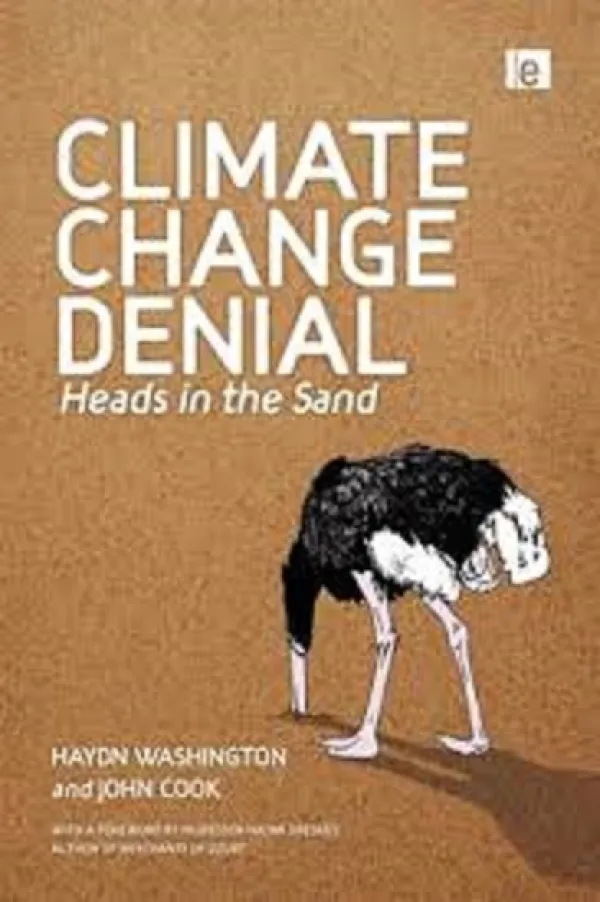Laughter is a wonderful thing. It’s hard to get too much of it. But there may be something even more valuable — something that you may be better able to grasp than some of your elders.
When you’re able to see a failure in others, it can be an opportunity to spot other similar failures — even those that you may be, in some measure, sharing in.
Why do climate deniers deny? No two are identical, but a major factor for many of them seems to be, not an analysis of evidence but loyalty to a worldview. In this worldview it simply cannot be the case that people are destroying the earth. That’s not in the sacred texts. There’s no place for it in many careers or lifestyles designed around extraction, consumption, destruction, and “development” of the world. Accepting the obvious would be harder than denying it. So it is denied, or — by far preferable — simply ignored and avoided.
But there are two ways in which the world may be destroyed for human (and much other) life, and millions of people who care about ending the destruction of the climate are steadfastly ignoring and avoiding the other problem. Those best informed on climate change have the darkest views on it. They say it’s progressing far more quickly than most have been willing to recognize. Those best informed on the other danger we face say the risk of it is at its highest point and increasing.
The other danger is that of nuclear holocaust. The number of bombs needed to end all life on earth through the destruction of the atmosphere and mass starvation continues to shrink in the expert analyses. The number of nuclear weapons ready to fire at a moment’s notice in the U.S. and Russia remains sufficient to destroy a large number of planets. The U.S. says it is developing newer, higher-tech, and “more usable” nukes. Other nations say they are following suit. The number of nations with nuclear weapons, and that of nations with nuclear power continue to grow. A major push is on in U.S. politics by some of the same people most concerned about climate change to create ever greater hostility toward Russia. And the proliferation of wars and weapons, with the potential of generating nuclear war, has reached new extremes.
Why do nuclear war deniers deny? No two are identical, but a major factor for many of them seems to be, not an analysis of evidence but loyalty to a worldview. In this worldview it simply cannot be the case that war is destroying the earth. That’s not in the sacred texts. There’s no place for it in many careers or lifestyles designed around militarism, aggression, xenophobia, and faith in technology. Accepting the obvious would be harder than denying it. So it is denied, or — by far preferable — simply ignored and avoided.
But avoiding recognition of one of the twin dangers we face severely handicaps even one’s efforts on the one that is recognized. Militarism is the single greatest contributor to climate and other environmental destruction, yet militarism proceeds utterly unopposed by major environmental advocacy organizations. Advocating for the obvious would be more inconvenient than denying it. So it is avoided.
Does this state of affairs make good liberal environmentalists who support the troops, salute the flag, falsely believe that military spending is economically beneficial, and have no doubt that terrorism can be ended by bombing it, somehow laughable? I don’t think so. I think it makes them tragic. And I think we should see climate deniers the same way.



